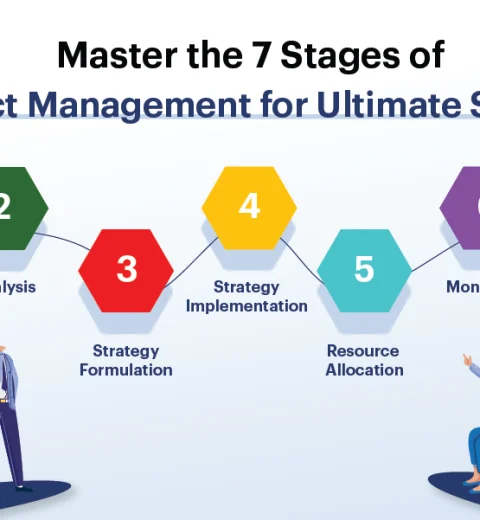If you’re a developer in the junior category, you’ve probably got the fundamentals of coding, completed your first real-world tasks, and begun to build the foundation for your career in the technology business. However, the transition from junior developer to senior developer may be daunting. Years of experience, complicated problem-solving, and leadership abilities often appear to be distant goals. The positive side? There is no need to wait 10 years to make the transition. With the right approach and mindset to get there, you can speed up your path to a higher position. At Tekki Web Solutions, we’ve experienced developers rising quickly by choosing areas of focus that show their potential. Learn how to get there as well.
1. Master Your Craft Beyond the Basics
Technical proficiency is the foundation of every senior developer. While junior positions generally involve being instructed and working on small tasks, senior developers tackle more complex issues and design scalable solutions. To achieve this, take a step beyond your current skills. Learn more about complex concepts such as design patterns, systems architecture, and optimization of performance. For those who are a Web designer, investigate frameworks such as React or Angular to the fullest extent of master backend technologies such as Node.js or Python if you have not previously.
Action Tip: Choose one particular area within your tech stack, and try to become the primary person for that area on your team. For instance, I require a master’s in the optimization of databases and API development. Share your knowledge through documentation or quick team tutorials—demonstrating expertise builds credibility.
2. Take Ownership of Projects
Senior developers aren’t just coding; they have a stake in the outcomes. Make every job an opportunity to show your ownership. In lieu of sitting back and waiting on instructions, be proactive and propose improvements, anticipate the occurrence of edge situations, and make sure your code is ready for production. This shift in mindset–from executor to problem-solver–signals you’re ready for more responsibility.
In Tekki Web Solutions Pvt. Ltd., we urge developers to consider: “How does my work impact the bigger picture?” It doesn’t matter if it’s improving user experience or decreasing time to load; linking your efforts to goals in the business will make your company stand out.
A tip to help: volunteer to work on an arduous project or feature. Keep track of your steps, from planning to implementation, and then share your findings with your manager or team.
3. Build Soft Skills Early
Technical skills alone won’t make you a senior developer–communication, collaboration, and leadership are just as necessary. Senior positions often require mentoring junior developers, working with key stakeholders, and communicating complicated concepts in simple terms. Begin to develop these skills today. Try giving positive feedback in code review or propose pairing your program with a colleague to resolve a difficult bug.
Action Tip: Take on a leading part in a small group discussion or a sprint planning session. Even if you aren’t officially “in charge,” stepping up and leading shows determination and increases confidence.
4. Seek Feedback and Act on It
Feedback is your way to improvement. Ask your manager regularly and peers or your senior colleagues about ways you could enhance your performance. Be specific and ask about the quality of your code and your approach to problem-solving or cooperation. The most important thing is: Do not just listen; do something about it. Demonstrate that you’re flexible and determined to improve your performance.
Action Tip: After your next assignment, schedule a one-on-one meeting conversation with your boss. Ask them, “What’s one thing I could do better to qualify for a senior role?” Follow their suggestions for your next project.
5. Learn to Think Strategically
Senior developers don’t simply write code; they create systems and make decisions that are scalable. Begin thinking about a bigger picture than the immediate need. What was the reason this feature was chosen as a priority? What is its place on the roadmap for product development? Knowing what is the “why” behind your work will help you be a part of more advanced discussions, which is a characteristic of thinking at the top.
Action Tip: Review your company’s tech stack and architecture. Make recommendations for a minor improvement (e.g. changing the structure of an older module) and describe the way it can be aligned with longer-term goals.
6. Build a Portfolio of Impact
Experience is important, but impact is even more important. Track your contributions–whether it’s a bug you fixed that saved hours of downtime or a feature that boosted user engagement. Make sure you quantify your wins whenever possible (e.g., “Reduced API response time by 30 minutes”). %”). Your portfolio of accomplishments will be your argument for promotion.
Action Tip: Create a personalized “brag doc” to log your achievements. You can share it with your manager when you review your performance to highlight your progress.
7. Network and learn from seniors
Find a group of individuals who’ve gone through the same process. Talk to senior developers at your workplace for coffee chats or mentoring. Outside of work, you can be part of the tech community. Attend gatherings, join open-source projects, or join forums. The lessons learned from other people’s experiences may reveal opportunities you’d never thought of.
Action Tip: Here at Tekki Web Solutions, we respect collaboration. Contact one of our senior colleagues and ask about their experiences. What are the skills or habits that got them to where they are now?
8. Be Patient but Persistent
Accelerating your career doesn’t mean overnight success. It’s about continuous improvement. Make short-term goals, such as learning a new skill within three months or directing an exclusive project by the end of the year. Celebrate little victories as you go. The persistence, when paired with deliberate efforts, will build over time.
Action Tip: Make the 6-month plan with specific milestones. Check it every month to ensure you are on the right track.
Final Thoughts
Moving between junior and senior developers isn’t just about the number of years you’ve worked in the field; it’s about showing that you are able to handle the duties of the position. In Tekki Web Solutions Pvt. Ltd., we’ve witnessed developers accelerate their careers by mixing technical proficiency with the ability to take ownership, soft skills, and strategic thought. Begin today by choosing a suggestion from this list and implementing it into every sprint. The title of senior might be more accessible than you think.
Are you ready to take your web career in development to the next step? Take a look at our opportunities with Tekki Web Solutions Pvt. Ltd. We’re always searching for talented developers who are eager to learn.



